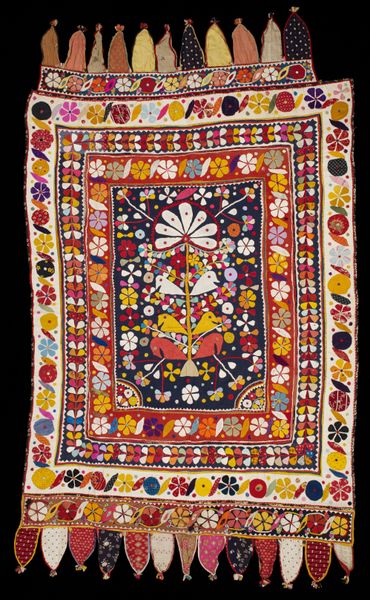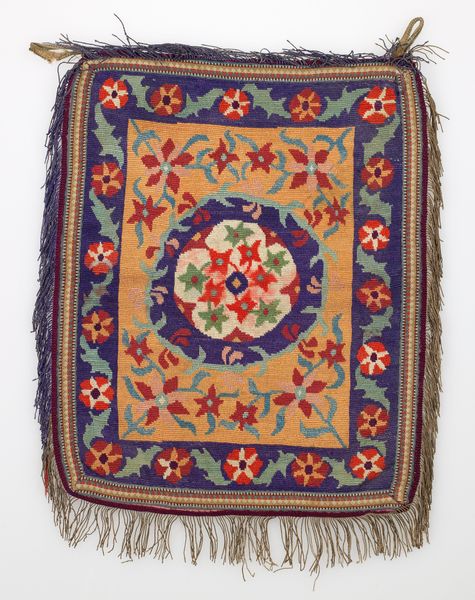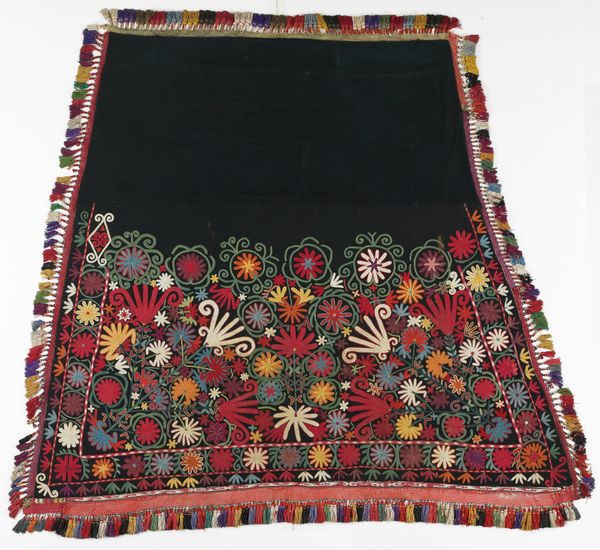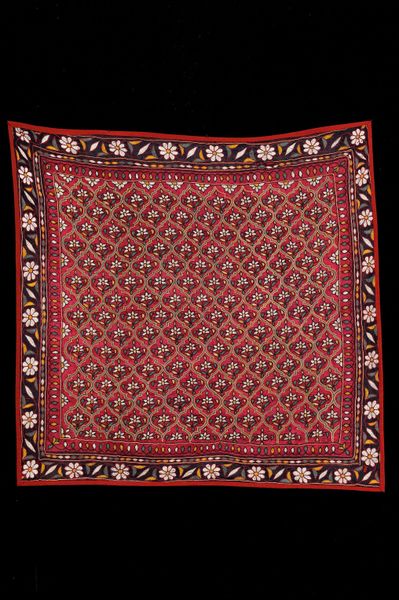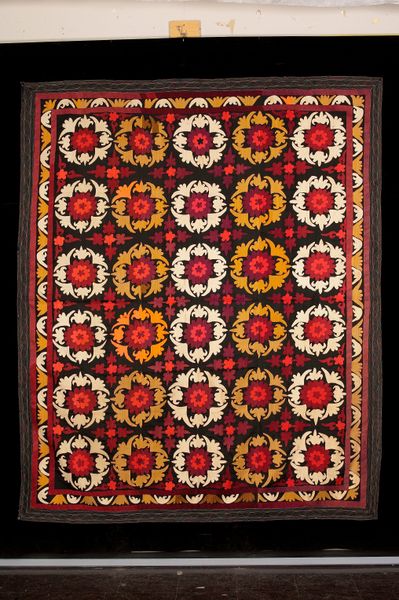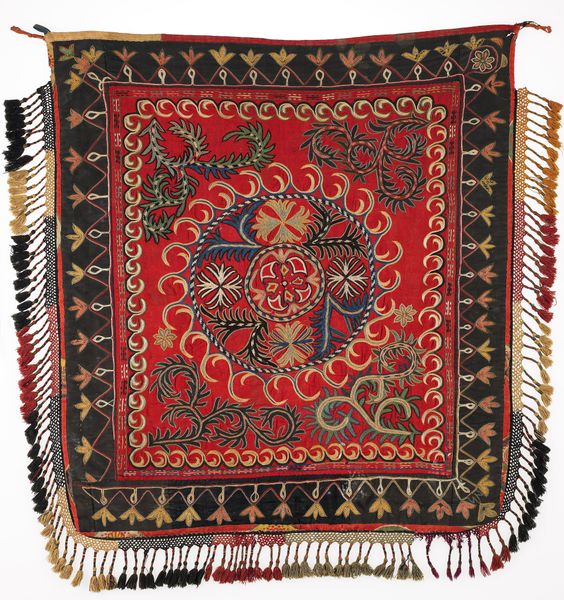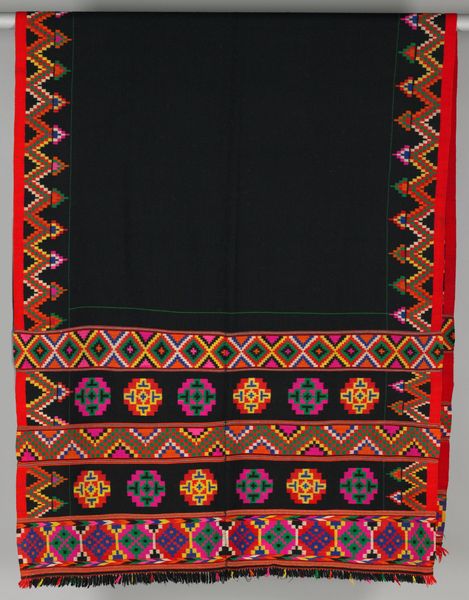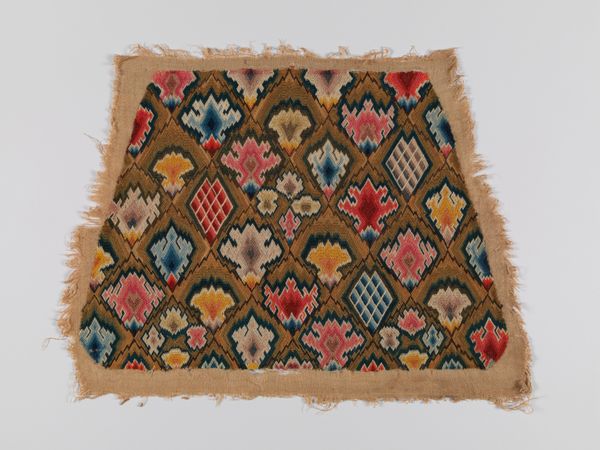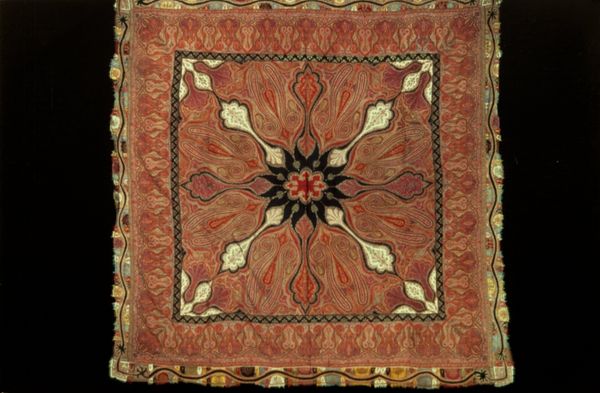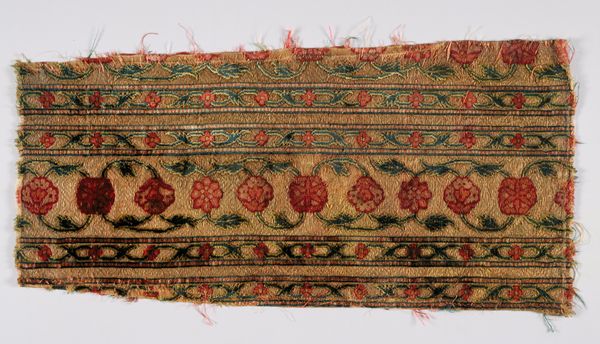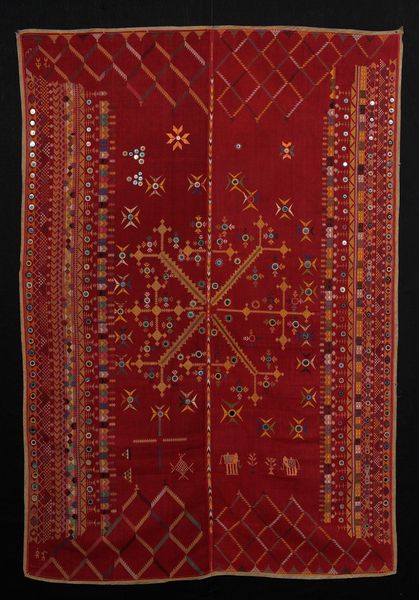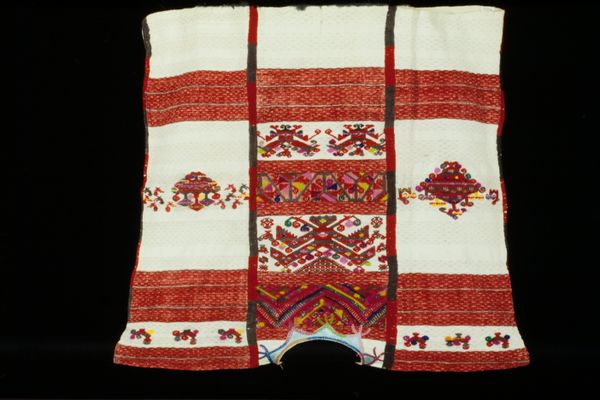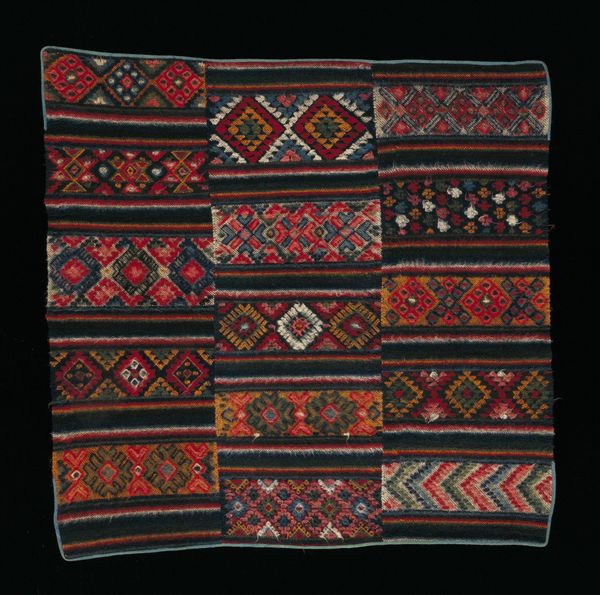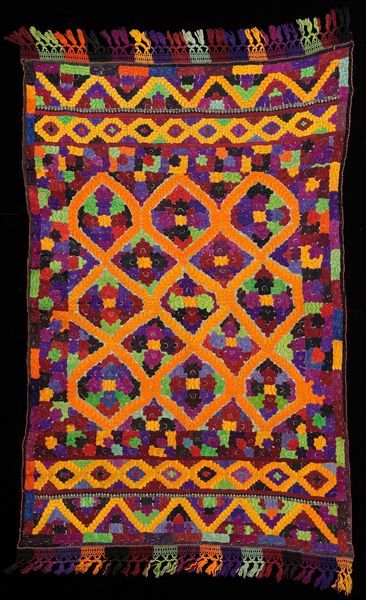
fibre-art, textile
#
natural stone pattern
#
fibre-art
#
naturalistic pattern
#
textile
#
pattern making
#
fashion and textile design
#
geometric pattern
#
pattern background
#
repetition of pattern
#
pattern repetition
#
textile design
#
layered pattern
Dimensions: 15 3/4 x 13 3/8 in. (40 x 34 cm)
Copyright: Public Domain
Editor: Here we have a *Pouch* from around the 19th century, created by an anonymous artist, employing cotton and textile weaving techniques. The geometric patterns and vibrant colors give it a celebratory and almost playful feeling. How do you see this piece within its historical context? Curator: It’s important to remember that objects like these weren't always viewed as “art.” Until fairly recently, textiles, even highly decorative ones, were considered craft or even simply utilitarian. How did museums start acquiring and displaying them, shifting public perception of their artistic merit? Editor: So, you're saying this pouch represents a shift in how institutions define "art?" That’s fascinating! Curator: Exactly. These objects were frequently collected during periods of colonialism, often stripping them of their original cultural meaning and integrating them into Western museum narratives. Consider its potential original use versus how we're viewing it now in a museum setting. How might its context change its meaning? Editor: I hadn’t considered the colonial implications. So, it goes from everyday use to becoming an artifact, displayed out of context... it's a little unsettling to think about. The focus shifts from functionality to aesthetics, but whose aesthetics are being centered? Curator: Precisely. The act of display itself assigns value, influencing how future generations interpret its significance. This also changes the maker from craftsperson to…anonymous. Editor: This makes me look at the pouch completely differently now. It's not just a beautiful object; it’s a document reflecting power dynamics within the art world itself. Curator: And by engaging with this perspective, we can hopefully be more conscious and thoughtful viewers of such artifacts. Editor: I've learned a great deal about art and cultural context here. I really had not thought of these issues when I first looked at it, only seeing pretty patterns!
Comments
No comments
Be the first to comment and join the conversation on the ultimate creative platform.
